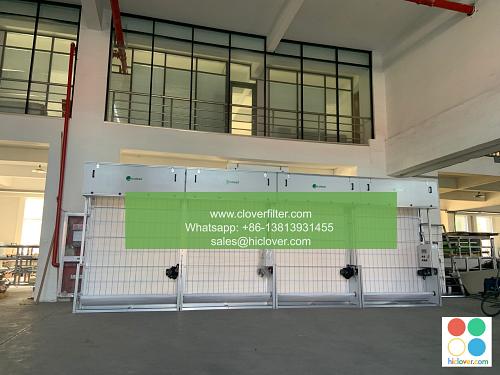The Future of Public Policy and Air Filter Regulations: A Glimpse into the Future

As the world grapples with the challenges of climate change, air pollution, and public health, the future of public policy and air filter regulations is becoming increasingly important. In this article, we will delve into the emerging trends and technological advancements that are shaping the future of air quality management and regulatory frameworks.
Introduction to Air Filter Regulations
Air filter regulations are designed to ensure that indoor air quality and outdoor air quality meet certain standards to protect public health and the environment. These regulations often involve the use of air filtration systems, which can remove particulate matter, gases, and other pollutants from the air. As air pollution continues to be a major concern, air filter regulations are becoming more stringent, driving innovation in air filtration technologies.
Emerging Trends in Air Filter Regulations
Several emerging trends are shaping the future of air filter regulations, including:
* Increased emphasis on indoor air quality: As people spend more time indoors, the importance of indoor air quality is becoming more recognized, driving demand for air filtration systems that can remove pollutants and allergens from the air.
* Advances in air filtration technologies: Nanotechnology, artificial intelligence, and Internet of Things (IoT) are being used to develop more efficient and effective air filtration systems.
* Growing concern about climate change: Climate change is driving the need for more sustainable and energy-efficient air filtration systems.
Application Areas for Air Filter Regulations
Air filter regulations have a wide range of application areas, including:
* Residential buildings: Air filtration systems are being used in homes and apartments to improve indoor air quality and protect public health.
* Commercial buildings: Air filtration systems are being used in offices, hospitals, and schools to improve indoor air quality and increase productivity.
* Industrial facilities: Air filtration systems are being used in industrial facilities to remove pollutants and hazardous materials from the air.
* Transportation systems: Air filtration systems are being used in vehicles and public transportation systems to improve air quality and protect public health.
Conclusion
In conclusion, the future of public policy and air filter regulations is becoming increasingly important as the world grapples with the challenges of climate change, air pollution, and public health. Emerging trends and technological advancements are shaping the future of air quality management and regulatory frameworks. As air filter regulations continue to evolve, it is essential to consider the application areas and emerging trends that are driving innovation in air filtration technologies. By working together, we can create a sustainable and healthy future for generations to come. It seems like you haven’t provided a prompt or question for me to respond to. Can you please provide more context or ask a specific question so I can give you a helpful and accurate response?

